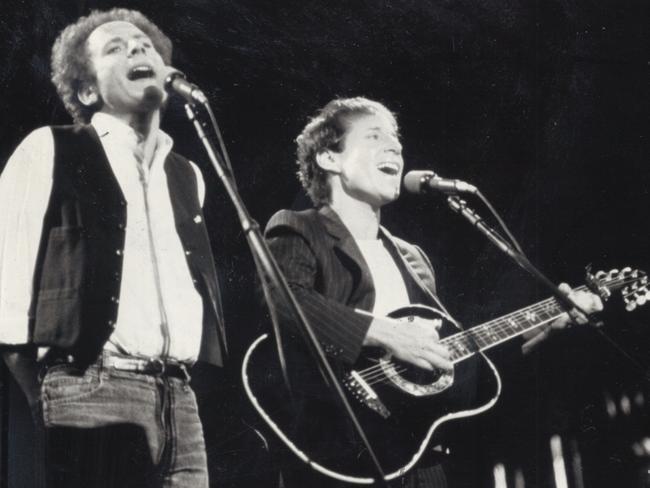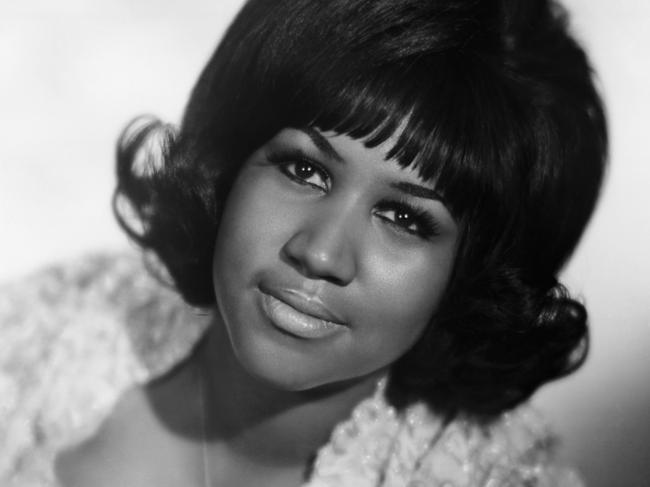Johnny Ace was one of the first rockers to live fast and die young
When Paul Simon sang a song about the violent death of singer Johnny Ace he added to the legend of the short-lived rocker
- Le Havre right on the Monet for birth of Impressionism
- Protest musical gave us new generation of stars
When singer-songwriter Paul Simon was reunited with his erstwhile partner Art Garfunkel for a concert in Central Park in 1981 he unveiled a new song. “I’ve recorded this song and I’ve never performed it before, so this is the first time.”
The song recalled when Simon was young and a man came on the radio to say: “I hate to break it to his fans but Johnny Ace is dead.”
In the song, Simon says even though “I wasn’t such a Johnny fan, I felt bad all the same” and sent away for a picture. It came back signed, “From the late, great Johnny Ace.”
During the third part of The Late Great Johnny Ace, in which Simon sang about the death of John Lennon an audience member jumped on stage. Simon dodged the man and went on singing without missing a beat.
It was a strange and eerie moment in pop music history — during a song recounting the violent death of two rock stars, it almost looked like Simon was going to be another victim.
Simon later said he had been thinking about the death of three Johns when he wrote the song and that Johnny Ace had been the first violent death of a famous person that had affected him.

Ace had died from a self-inflicted gunshot wound, on Christmas Day in 1954, and news of the event shocked music fans across America, including the young Simon.
Most of Simon’s fans watching the concert in Central Park would have had no idea who Johnny Ace was, but he was one of the first rockers to die young.
His brief life and violent death have become part of rock’n’roll legend. His demise made him a bigger star than he had been, giving a boost to record sales and turning his songs into classics, later performed and recorded by artists such as Aretha Franklin, Bob Dylan, Elvis Presley and Paul Simon.
He was born John Marshall Alexander, 90 years ago tomorrow, on June 9, 1929, in Memphis, Tennessee. The sixth of 11 children, his father was a Baptist preacher and Johnny was probably introduced to singing in church at an early age, but there was also a piano at home and he taught himself to play by picking out tunes, mostly hymns, but when his parents were away he played blues.
At school he was a good student, intelligent, literate and also good at music. A teacher at school recognised his talent and suggested his mother get him music lessons. Ace started but never finished, preferring to be playing music rather than formally learning it.
He dropped out of school in 1946 to join the navy, but the military police were always having to track him down as he went absent without leave to play in taverns and bars. He was dishonourably discharged in 1947.
That left him free to pursue his career in music. He began singing on Beale St but was not yet a member of a band, when he met Lois Jean Palmer, known as Jean. They started dating and in 1949 Ace got a job as a pianist with Bobby Bland’s Beale Street Blues Boys, who often played as B.B. King’s backing band and performed regularly on the all-black radio station WDIA.

When Jean discovered she was pregnant she and Ace married in Arkansas, in July 1950 and a son Glenn was born later that year.
While Jean went to live with Ace’s parents, Johnny was barred from his home by his mother and father who didn’t like him singing sinful blues music.
When Bland left to do army service and B.B. King was given a contract with a big recording company and left Memphis in 1952, Ace became leader of the band, which was renamed The Beale Streeters and Johnny started using the name Ace.
When WDIA’s program director David Mattis launched his own record label, Duke, he signed Ace. In June 1952 he recorded My Song, a reworking of the Ruth Brown hit So Long, with a new melody and lyrics. It was a rough recording but Ace’s soulful blues ballad marked it out as something new and different, in the vein of Nat King Cole’s smooth, soulful crooning.
My Song was a local hit but Mattis was in financial trouble so he took on a business partner, Texan record producer Don Robey, who saw great potential in Ace.
Robey was the owner of Peacock records and had recorded some big names including Willie Mae “Big Mama” Thornton and Texas Slim. Robey put money into promoting Ace, sending My Song into the top 10 of Billboard’s R & B charts.
He followed that with the very similar song Cross My Heart, which also did well. Ace went on the road performing at concerts with Thornton and some of Robey’s other stars, making an estimated $600 a night, meanwhile churning out more hits in between.
In 1953, Thornton had a hit with Hound Dog and Ace’s The Clock and Cross My Heart were also doing well on the charts, drawing bigger crowds to their live shows. Both were becoming national stars.
Although his first single in 1954, Saving My Love For You, was not as big a hit as previous tunes, the next single Please Forgive Me was a huge success, resulting in several sellout concerts. There was even some cross over into non-black charts. There were stories of him being mobbed by fans who ripped his clothes off.
But Ace was feeling the strain.
To let off steam on his exhausting concert schedule he would sometimes play around with guns. He enjoyed racing along highways in his car, shooting holes in road signs with a .22 pistol.
On December 25, 1954, he was relaxing backstage in a dressing room between sets during the Negro Christmas Dance at Houston’s City Auditorium, when he produced his pistol and began waving it around.
He spun the chamber and pointed it at other members of the concert troupe and squeezed the trigger. After being admonished by someone for being careless and told not to point the gun at anyone he boasted that he knew which chamber the bullet was in and that it wasn’t dangerous. Pointing it at his own head he pulled the trigger and shot himself. He died instantly.
His funeral service on January 2, 1955, drew thousands of mourners.
Robey still had some unreleased tracks by Ace. In February, 1955 Pledging My Love hit the top of the R&B charts and later made No.17 on the ordinary Billboard charts.
While he had been well known by African-American audiences his fame now spread to white audiences.
Another single, Anymore, was also a hit, further adding to Ace’s posthumous fame.



